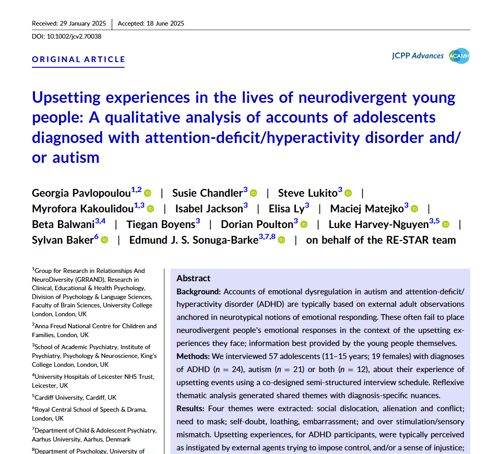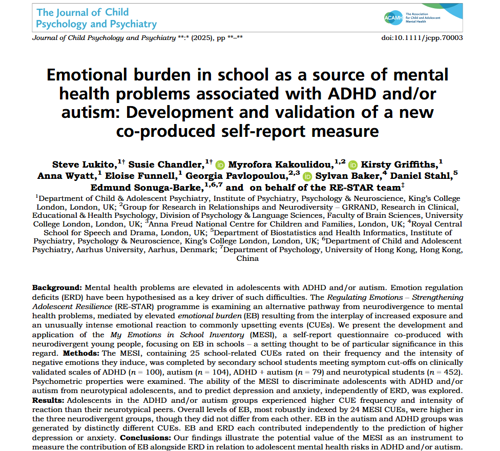Recent research with young people with diagnoses of ADHD, autism or both
Those of you who attended last year’s CORC Forum will remember Dr Georgia Pavlopoulou’s talk on ‘Emotional triggers and associated burdens experienced by adolescent school pupils with diagnoses of ADHD, autism or both’.
As a follow on to this, we wanted to share with you further research Georgia has been involved with.
This study provides the first large scale, in-depth qualitative exploration of everyday upsetting events from the perspective of young people with diagnoses of ADHD, autism or both.

The findings highlight the importance of taking the young person's point of view into account when trying to explain neurodivergent emotion. Four findings were especially noteworthy:
- Social dislocation, alienation and conflict
- The experience of hiding one's true self, the need to mask
- Internalised self-doubt, loathing and embarrassment
- Under/over stimulation and sensory mismatch
Highlighting how important it is to include considerations of the specific nature of environmental provocations when designing mental health interventions.
The study highlights the value of considering the specific nature of environmental provocations when designing mental health interventions. It calls for a holistic approach where, on the one hand, agencies work together to adapt environments to reduce provocations where they can (e.g., in the classroom) and, on the other, they work with young people to manage the challenges faced in their day-to-day lives. This appraoch can foster positive development by supporting self-worth and growing agency and belonging (Pavlopoulou; Sonuga-Barke).
Additionally, this research presents the development and application of the My Emotions in School Inventory (MESI), a self-report questionnaire co-produced with neurodivergent young people, focusing on emotional burden in schools.

The findings illustrate the potential value of the MESI as an instrument to measure the contribution of emotional burden alongside emotion regulation deficits in relation to adolescent mental health risks in ADHD and/or autism.
We hope to update further on this in due course.
At the CORC Forum this November, CORC will be launching a guidance for using outcome measures for working with neurodivergent children and young people.